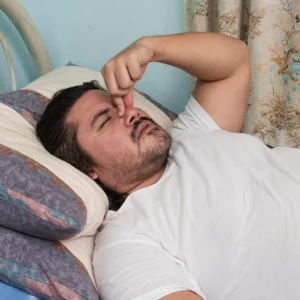
Sleep apnea, a disorder characterized by interrupted breathing during sleep, has long been associated with a myriad of health issues. Surprisingly, recent research has unveiled a potentially intricate link between sleep apnea and schizophrenia, two seemingly unrelated conditions. Sleep apnea and schizophrenia are distinct conditions, one affecting the respiratory system during sleep and the other a complex mental health disorder. However, recent studies have highlighted a potential association between the two. Individuals with schizophrenia are found to have a higher prevalence of sleep apnea, suggesting a bidirectional relationship that merits closer examination.

Get Answers